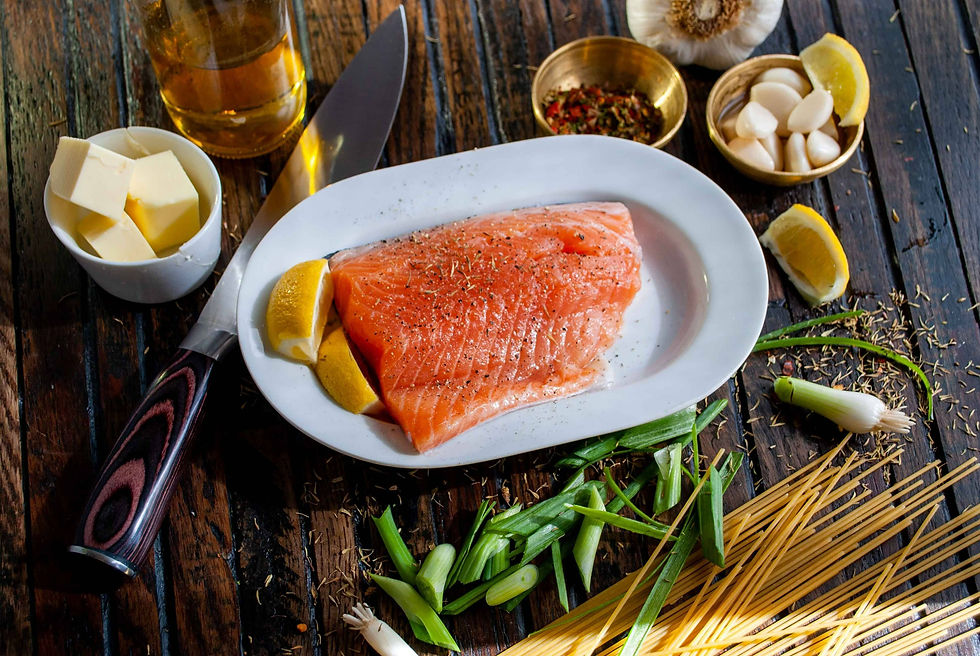The ketogenic diet is based on a very low carbohydrate intake, and due to the high fat intake, it resembles Atkins or other low-carbohydrate diets. It includes a drastic reduction in carbohydrate consumption, which is replaced by fat intake. Carbohydrate reduction puts your body in a metabolic state called ketosis. When this happens, your body becomes a very efficient fat burning machine for energy.
Standard Ketogenic Diet:
This is a diet of very low carbohydrate intake, moderate protein intake, and high fat intake. The ratio is usually as follows: 75% fat, 20% protein and only about 5% carbohydrates. * The information in this text mainly refers to the standard ketogenic diet, which is the most recommended.
A ketogenic diet is an effective way to lose weight and reduce your risk factors for various diseases.
In fact, research shows that the ketogenic diet is superior to the often recommended low-fat or low-fat diet. Moreover, this diet is so filling that you can lose weight without counting calories or following every bite you eat. One study found that people on a ketogenic diet lost more than 2.2 times the weight of those on low-calorie, low-calorie diets. Triglycerides and good HDL cholesterol have also improved.
Another study found that participants in a ketogenic diet lost 3 times more pounds than those on a diet recommended for diabetes in the UK. There are several reasons why a ketogenic diet is superior to a low-fat diet. One is that protein intake is increased, which has numerous benefits. Increased ketone levels, lowered blood sugar and improved insulin sensitivity may also play a key role. A ketogenic diet can help you lose weight more than a low-fat diet. This almost always happens without hunger.
Ketogenic diet for diabetes and prediabetes
Diabetes is characterized by changes in metabolism, high blood sugar and reduced insulin function. A ketogenic diet can help you lose weight, which is closely linked to type 2 diabetes, prediabetes and metabolic syndrome. A ketogenic diet can increase insulin sensitivity, lead to fat loss, and drastically improve the situation in type 2 diabetes and prediabetes.
Other Health Benefits of a Ketogenic Diet
The ketogenic diet was actually created as a tool to treat neurological diseases, such as epilepsy. Studies have shown that it is effective in a number of different disorders: heart disease, cancer, Alzheimer's disease, Parkinson's disease, polycystic ovary syndrome, brain injuries, acne.
What foods to avoid?
Sugar: Soft drinks, fruit juices, shakes, cakes, ice cream, cakes, etc.
Cereals and starch: Products based on wheat, rice, pasta, cereals, etc.
Fruits: All fruits, except small portions of berries, such as strawberries.
Beans and legumes: Peas, beans, lentils, chickpeas, etc.
Root vegetables: Potatoes, sweet potatoes, carrots, parsnips, etc.
Non-fat or dietary products: These are usually highly refined products and often rich in carbohydrates.
Sauces: Usually contain sugar and unhealthy fats.
Unhealthy fat: Limit your intake of refined or unrefined vegetable oil, mayonnaise, etc.
Alcohol: Due to its carbohydrate content, alcoholic beverages can drive you out of ketosis.
Sugar-free soft drinks: These drinks are typically rich in sugar alcohols, which can affect blood ketone levels. In addition, they are typically highly refined.
All in all: Avoid carbohydrate-based products and foods, such as grains, harmful sugars, legumes, rice, potatoes, sweets, juices, and even most fruits.
What types of foods can you eat?
Meat: Red meat, steak, leg, sausages, bacon, turkey.
Oily fish: For example, salmon, tuna, trout, mackerel.
Eggs: Look for eggs from hens that roam freely in the yard.
Butter and cream: Look for butter from grazing cows if possible.
Cheese: Unprocessed cheese (cheddar, goat cheese, blue cheese, mozzarella).
Nuts and seeds: Almonds, walnuts, flax seeds, pumpkin seeds, whose seeds, etc.
Healthy oils: Primarily coconut oil (for cooking), avocado oil, extra virgin olive oil (for salad, not for cooking)
Avocado
Vegetables without a lot of carbohydrates: green leafy vegetables, tomatoes, peppers, onions.
Other: You can use salt, pepper and various healthy spices and herbs.
It is best to base your diet on whole, unprocessed natural foods.
All in all: The main part of your diet should consist of meat, eggs, butter, nuts, healthy oils, avocados, and plenty of vegetables.
NOTE: always consult your doctor!
#food #healthyfood #healthy #ketogenic #diet #simple #delicious #recipe #blog #foodblog #foodblogger #coffeetimelena #foodlover #homemade
Use the contact form for questions or advice.
I would be happy if you would comment on my recipes and put like.




























































































































































































Comments